Stephen McLaren - Interview
by John Clarkson
published: 31 / 10 / 2017
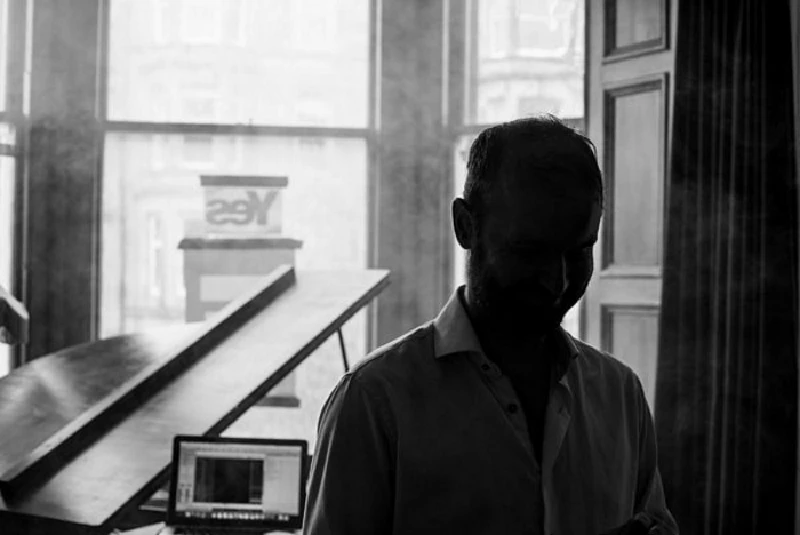
intro
Edinburgh-based singer-songwriter Stephen McLaren talks about his debut solo album, 'We Used to Go Raving', which was written and recorded on the piano.
“I just want to go out and give it a real go,” says Stephen McLaren. “I want to know that I have done everything that I can to try and push my music through the vast forest of people doing exactly the same thing. I don’t want to look back and say that I never gave myself the chance to do that.” He is sitting in a busy coffee shop just off Leith Walk and talking to Pennyblackmusic about his forthcoming debut solo album ‘We Used to Go Raving’ and his recent decision to reduce his hours at work so that he can concentrate on his songwriting career. McLaren, who works as a secondary school music teacher and who is 34, is the ex-frontman and pianist with Collar Up, a critically -lauded indie pop trio, which he formed in Glasgow in the early 00’s and that followed him through to Edinburgh when he moved there some years ago. ‘We Used to Go Raving’ is really special. An album based entirely around the piano, it stretches from New Order-style pop such as the title track and ‘I Sing to You’ into classic Burt Bacharach singer-songwriter territory on songs like ‘You Look Older When You Slouch’. It finds McLaren looking back on his wild 20’s both with both nostalgia and regret and working out now what to do with his 30’s. The cascading title track, for all the euphoria of its tune, is basically a song of regret, telling of the friend and “brother” that he used to do a lot of his partying with but who he now no longer sees. Other highlights include the pro-Scottish Independence anthem ‘No More (Say Yes)’ , and the scathing ‘Immigrants’ which pours scorn on the right wing media’s conduct of the Brexit referendum. We spoke to Stephen McLaren about his decision to break up Collar Up and go solo. PB: Collar Up‘s second album ‘Ghosts’ did fairly well and received a lot of critical acclaim. Why did you decide to split up Collar Up and go solo? SM: Our first album went unnoticed but ‘Ghosts’, as you say , and especially considering we didn’t have any backing, did pretty well. It got a lot of very positive press coverage and made ‘The Sunday Herald’ End of the Year poll in 2013. Being in a band, however, gets harder as you get older, and both the guitarist Chris (Harvey) and the drummer Nora (Noonan) had a lot of other commitments. I wanted to take on more gigs, and the only way I could do that was to be a solo artist. I also had always hankered to do electronica in some form and it is difficult to do that with a band. It is not impossible, but it is difficult and I felt that I could do that on my own. PB: Was it a hard decision to split? SM: Yeah, it was. It was not a decision that I made lightly or quickly. I am really good friends with both Chris and Nora, so it was something that I thought about for a long time. I repressed the thought of it at first, but, like so many things in life, you can only repress feelings like that for so long. I had a very mature and respectful conversation with both Nora and Chris, and we ended the band, as we should have, on something of a high in February of last year and playing our farewell gig to a packed house. PB: You formed Collar Up when you were 21 and are now in your mid-30's. It is a long time to be writing and performing music. Many people who form bands in their teens and early 20's have long since stopped by the time they reach your age. Why do you think that you have kept going? Is it sheer bloody-mindedness? SM: Yes, partially (Laughs). 21 is quite a late age to start songwriting. Some people reach a peak at 21, but I see myself as still developing as a songwriter. There is always something - a song or a cluster of songs or an experience at a live gig or a press comment - that just keeps me going. The first song that I ever wrote was called ‘Call of the Workers’, and it got such a great response from the people around me that I have never wanted to stop since. I keep thinking that I will run out of ideas and I keep proving myself wrong. As long as I have ideas, I will keep song writing. Another factor is that there is that there are not a lot of folk doing what I am doing. I don’t think there is much out there that sounds like it. My music is based around the piano rather than the guitar which is unusual in pop music, and that gives it a different dimension and sound. PB: The title track on ‘We Used to Go Raving’ pulls off the double trick of being both euphoric and melancholic? Do you see it coming down ultimately on the side of regret or nostalgia? SM: You’re right. It is a double trick. I see it primarily as being about regret and the ending of a relationship. When people come down to gigs though, it is the song that they most want to hear but it is ultimately a very sad song. PB: Both ‘No More (Say Yes)’ and ‘Immigrants’ are strongly political pro-Scottish independence, anti-Brexit numbers. Obviously you are going to have people listening to it who disagree with you. Were you concerned about potentially alienating them? SM: No. Not all. I don’t really care. People have to be allowed to disagree. I am very pro-Scottish Independence and always have been, but there may be people who voted ‘Yes’ who hate ‘No More (Say Yes)’ in the same way that there may be people who voted ‘No’ who like that tune. I would hope that some people will enjoy it as a song on its own terms whatever its political values. In the case of ‘Immigrants’ I am anti-Brexit but I am not as anti-Brexit as I am pro-Independence. I am not a huge fan of the European Union. If you are working in a warehouse or Sports Direct or something like that or below the minimum wage, I can perfectly understand why you might turn around and say, “What has the European Union ever done for me?” That song is more about the way in which that debate was conducted. It was conducted by the big tabloids – ‘The Daily Mail’ and ‘The Daily Express’ – in a disgraceful way. If it had been conducted as a fair debate by them without the xenophobia and the racism and bizarrely Islamophobia , the fall-out would have been less. That was what the song was criticising, not necessarily the people who were pro-Brexit. PB: You’re playing a launch gig at Leith Depot in Edinburgh on September 23rd and the album comes out on September 29th? What are your plans and immediate hopes after that? SM: A lot of the gigs that I have done during the last few years have been self-run. I am hoping that I will be asked to come and support other people. I am hoping that the record will be well-received and I will get the reputation for being someone worth booking. I am hoping that I will be asked to support other people or to come and play their nights. Of course, we will keep setting up our own gigs, but I want to come and play other people’s gigs as well. Every offer will be taken seriously. PB: Thank you.
Band Links:-
https://www.facebook.com/stephenmclarenmusichttps://twitter.com/mclarenallday
https://www.facebook.com/errantmediamusic
https://twitter.com/errantmedia
https://errantmedia.bandcamp.com/
Picture Gallery:-
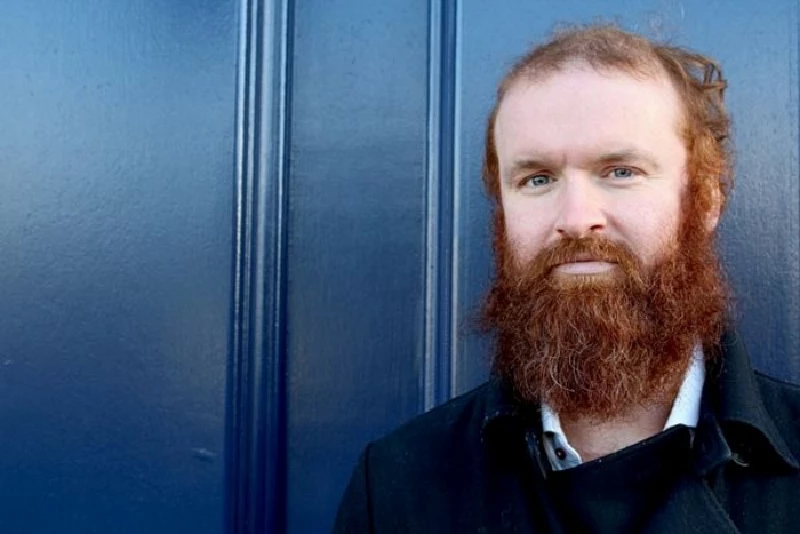
interviews |
|
Interview (2022) |
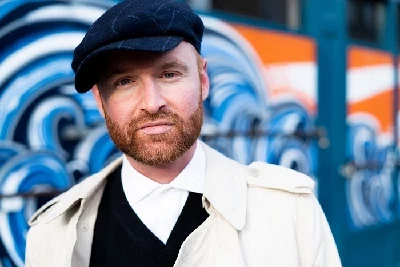
|
| Glaswegian-born but Edinburgh-based singer-songwriter Stephen McLaren talks to John Clarkson about his political and thought-demanding second solo album 'They Don't Put Any Money in Your Pocket'. |
profiles |
|
'Put Me On The Television' Video Premiere (2021) |
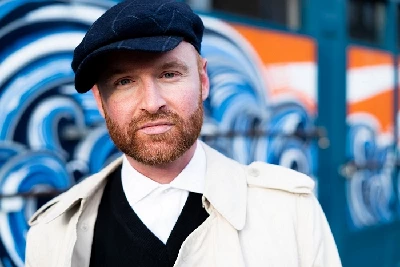
|
| Pennyblackmusic is proud to premiere the video for 'Put Me On The Television', the debut single from Edinburgh-based singer-songwriter Stephen McLaren's forthcoming dream-pop second album 'They Don’t Put Any Money in Your Pocket'. |
soundcloud
reviews |
|
We Used to Go Raving (2017) |
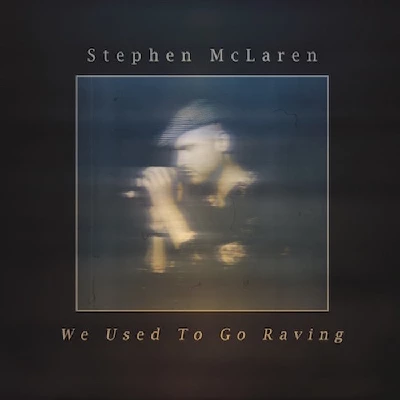
|
| Bleak but self-deprecating debut solo album by Edinburgh-based singer-songwriter and pianist/keyboardist Stephen McLaren |
most viewed articles
current edition
Spear Of Destiny - InterviewRobert Forster - Interview
Fiona Hutchings - Interview
When Rivers Meet - Waterfront, Norwich, 29/5/2025
Carl Ewens - David Bowie 1964 to 1982 On Track: Every Album, Every Song
Brian Wilson - Ten Songs That Made Me Love...
Chris Wade - Interview
Pistol Daisys - Waterfront, Norwich, 29/5/2025
Credits - ARC, Liverpool, 17/5.2025
Nils Petter Molvaer - El Molino, Barcelona, 24/4/2025
previous editions
Heavenly - P.U.N.K. Girl EPBarrie Barlow - Interview
Boomtown Rats - Ten Songs That Made Me Love....
Oasis - Oasis, Earl's Court, London, 1995
Dwina Gibb - Interview
Beautiful South - Ten Songs That Made Me Love...
Sound - Interview with Bi Marshall Part 1
Manic Street Preachers - (Gig of a Lifetime) Millennium Stadium, Cardiff, December 1999
Trudie Myerscough-Harris - Interview
Serge Gainsbourg - Ten Songs That Made Me Love...
most viewed reviews
current edition
Peter Doolan - I Am a Tree Rooted to the Spot and a Snake Moves Around Me,in a CircleGarbage - Let All That We Imagine Be The Light
Vinny Peculiar - Things Too Long Left Unsaid
Little Simz - Lotus
John McKay - Sixes and #Sevens
Suzanne Vega - Flying With Angels
HAIM - I Quit
Vultures - Liz Kershaw Session 16.06.88
Billy Nomates - Metalhorse
Eddie Chacon - Lay Low
Pennyblackmusic Regular Contributors
Adrian Janes
Amanda J. Window
Andrew Twambley
Anthony Dhanendran
Benjamin Howarth
Cila Warncke
Daniel Cressey
Darren Aston
Dastardly
Dave Goodwin
Denzil Watson
Dominic B. Simpson
Eoghan Lyng
Fiona Hutchings
Harry Sherriff
Helen Tipping
Jamie Rowland
John Clarkson
Julie Cruickshank
Kimberly Bright
Lisa Torem
Maarten Schiethart